June 16, 2025 | 04:15 GMT +7
June 16, 2025 | 04:15 GMT +7
Hotline: 0913.378.918
June 16, 2025 | 04:15 GMT +7
Hotline: 0913.378.918
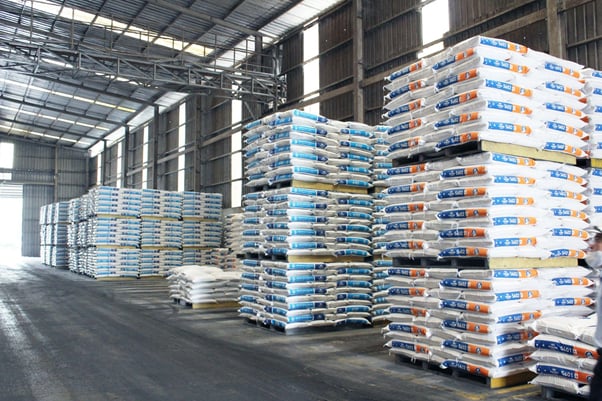
Despite the complicated epidemic in 2021 and high raw material prices in early 2022, Mavin Group commits to standing side-by-side with customers through many flexible solutions. Photo: TL.
According to the Department of Livestock Production (Ministry of Agriculture and Rural Development), Vietnam's industrial animal feed production industry still depends on 90% of imported raw materials.
While the price of raw materials typically accounts for about 80-85% of animal feed production costs, the increase in prices worldwide directly impacts enterprises' production costs.
In the context of high input material prices that pushed animal feed prices up, manufacturers were forced to adjust finished animal feed product prices to ensure product quality and maintain customer support activities in the domestic because herd re-introduction activities are being promoted. By February 2022, animal feed businesses adjusted their prices for the 10th time since the end of 2020.
In the notice of raising the price of animal feed on February 21, 2022, Mavin Group, one of the 10 most prestigious animal feed companies in Vietnam, explained that its price increase was due to input raw material prices. The increase in selling prices maintains and ensures product quality to serve customers.
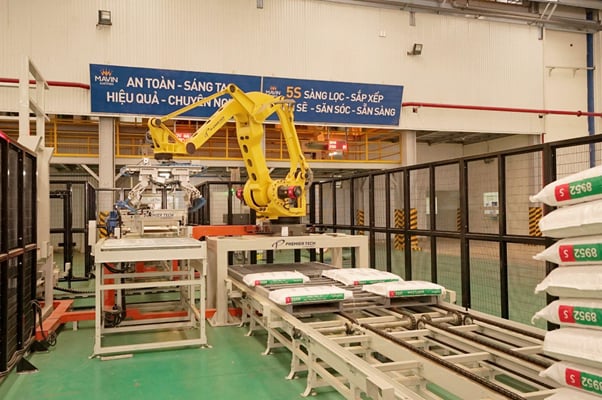
Mavin Group has also promoted more technical support for farmers, consulting and providing equipment and treatment drugs to protect livestock from diseases reduce risks in livestock production. Photo: TL.
Mr. David John Whitehead, Chairman of Mavin Group, said: "Although high raw material prices push up Mavin Group's production costs continuously, we always commit two factors to customers: The best product quality, and reasonable selling prices. We are confident in the quality of Mavin Group’s products that can meet farmers' needs, which is always optimizing costs and helping to increase livestock productivity. Hence, farmers can always optimize production costs with Mavin Group's products even in market fluctuations."
To accompany farmers in continuously increasing animal feed prices, Mavin Group has also promoted more technical support for farmers, consulting and providing equipment and treatment drugs to protect livestock from diseases reduce risks in livestock production.
"Despite the complicated epidemic in 2021 and high raw material prices in early 2022, we commit to standing side-by-side with customers through many flexible solutions. Thereby, we will help customers overcome difficulties and gain customers' trust. It can say that in 2021, although the market has faced many difficulties, Mavin Group has recorded impressive growth in output and customer", the Mavin Group's representative said.
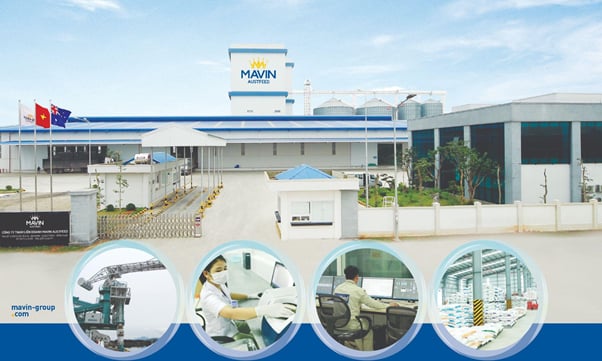
Mavin Group owns 5 modern animal feed factories nationwide. Photo: TL.
The Mavin Group's advantages in the market include owning a nationwide network of factories, warehouses, and distribution agents. Mavin Group is also a pioneer in applying high technology, automation, and product digitization.
This enterprise currently has five animal feed processing factories (including one aquatic feed processing factory) with a total capacity of over 1 million tons/year, applying advanced European and American production technology. 100% of factories follow the intelligent production model with automation applications combining SCADA/MES and ERP SAP S/4HANA software.
Mavin Group is one of the few animal feed companies recognized by the Ministry of Agriculture as a high-tech agricultural company. Thanks to technology, automation, and digitization, Mavin Group optimizes productivity, ensures accurate and efficient production, and ensures uniformity and product quality.
Mavin Group operates through 3 leading animal feed brands, including Mavin Austfeed, Stargro, and Starkare. The Group uses safe imported raw materials from reputable suppliers globally, with quality certifications and traceability, effective control of disease transmission.
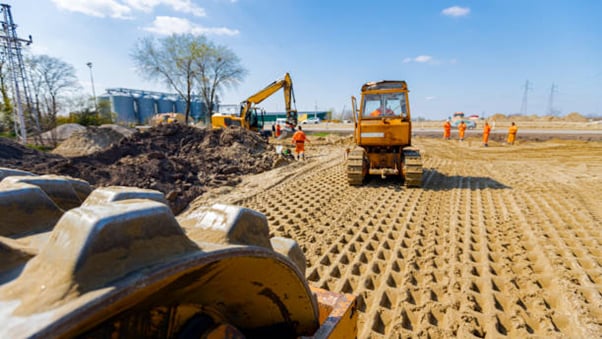
Mavin is building closed livestock complexes from growing raw materials to processing food nationwide in some provinces and cities. Photo: TL.
According to the Chairman of Mavin Group, the Group is currently researching and implementing models of large-scale livestock complexes in Lai Chau, Son La, Kon Tum, Gia Lai, Nghe An provinces, from growing raw materials to slaughtering and processing food. It is a long-term solution to improve the self-sufficiency of raw materials.
In addition, from 2021, Mavin Group has also applied solutions to reduce forces from increasing raw material prices, such as sourcing raw materials in less affected countries; find alternative sources of raw materials.
The Department of Livestock Production warns that in the upcoming time, corn and some key industrial feed ingredient prices will continue to increase due to supply constraints of raw materials caused by the conflict between Russia and Ukraine, disrupting the global supply chain (Ukraine is the leading corn exporter in the world, with about 30 million tons per year). Therefore, animal feed prices will continue to increase in the upcoming time, adversely affecting the livestock industry.
Therefore, the Department of Livestock Production has recommended that businesses develop feed substitutes for industrial feeds to reduce pressure from the current high price of raw materials.
Translated by Ha Phuc

(VAN) Noting risks, report examines impacts of avian influenza, changing trade patterns since 2022, fish fraud, and shipping industry’s net-zero goals.

(VAN) Mr. Tran Quang Bao, General Director of the Forestry and Forest Protection Department, met and worked with the International Wood Products Association to promote cooperation in the field of timber trade.

(VAN) China's outbound shipments of rare earths in May jumped 23% on the month to their highest in a year, though Beijing's export curbs on some of the critical minerals halted some overseas sales.

(VAN) To sustain capital flow, administrative reform alone is not enough; what farmers truly need is an ecosystem where both government and businesses grow together in support.
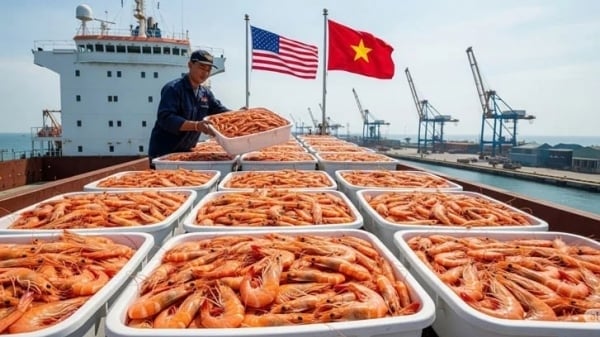
(VAN) Vietnam and the United States are proactively working together, each in their own way, to ensure that every container of agricultural goods carries not just products, but also long-term trust and value.
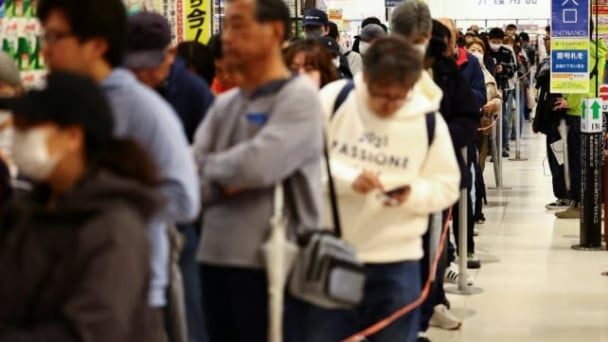
(VAN) Stores have started selling rice from the government’s stockpile to feed demand for the staple.
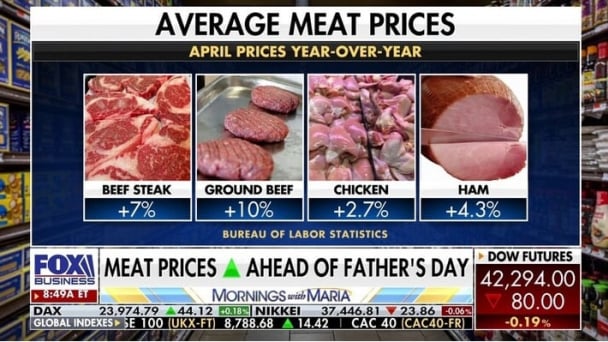
(VAN) Omaha Steaks CEO says rebuilding cattle herds will take about a year to ease price pressures.